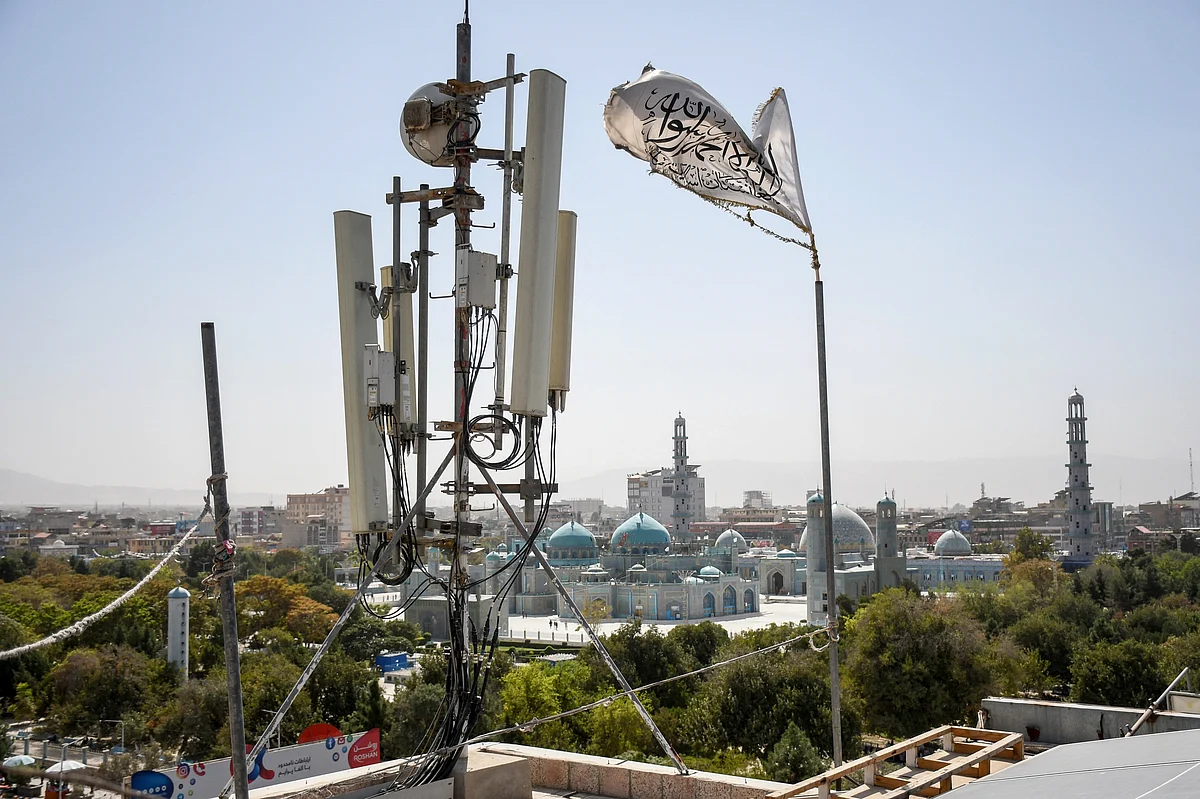Afghanistan Hit By Major Communications Blackout As Taliban Cuts Fibre Optic Networks
A huge communications blackout hit Afghanistan on Monday, weeks after Taliban authorities began severing fibre optic connections in multiple provinces to prevent "vice".
AFP lost mobile phone contact with its bureau in the capital Kabul around 6.15pm (1315 GMT), as well as with journalists in the cities of Herat and Kandahar.
Recommended For You UAE weather: Alerts issued for fog, rough seas; temperatures to dip to 22oC"A nation-wide telecoms blackout is now in effect," said Netblocks, a watchdog organisation that monitors cybersecurity and internet governance.
Stay up to date with the latest news. Follow KT on WhatsApp Channels.
"We're now observing national connectivity at 14 per cent of ordinary levels."
The watchdog said the incident "appears consistent with the intentional disconnection of service".
Afghanistan's Taliban authorities began the crackdown on internet access earlier this month, effectively shutting down high-speed internet in several regions.
Over the past several weeks, internet connections have been extremely slow or intermittent.
Telephone services are often routed over the internet, sharing the same fibre lines, especially in countries with limited telecoms infrastructure.
"Physically pulling the plug on fibre internet would therefore also shut down mobile and fixed-line telephone services," Netblocks told AFP.
"It may turn out that disconnecting internet access while keeping phone service available will take some trial and error."
On September 16, Balkh provincial spokesman Attaullah Zaid said fibre optic internet was completely banned in northern province on the leader's orders.
"This measure was taken to prevent vice, and alternative options will be put in place across the country to meet connectivity needs," he wrote on social media.
At the time, AFP correspondents reported the same restrictions in the northern provinces of Badakhshan and Takhar, as well as in Kandahar, Helmand, Nangarhar and Uruzgan in the south.
In 2024, Kabul had touted the 9,350-kilometre fibre optic network - largely built by former US-backed governments - as a "priority" to bring the country closer to the rest of the world and lift it out of poverty.
Since regaining power in 2021, the Taliban have instituted numerous restrictions in accordance with their interpretation of Islamic law.

Legal Disclaimer:
MENAFN provides the
information “as is” without warranty of any kind. We do not accept
any responsibility or liability for the accuracy, content, images,
videos, licenses, completeness, legality, or reliability of the information
contained in this article. If you have any complaints or copyright
issues related to this article, kindly contact the provider above.
Most popular stories
Market Research

- Alt.Town Introduces $TOWN Token Utility Across Platform Services And Launches Valuefi Deposit Event
- BTCC Exchange Maintains 143% Total Reserve Ratio In September 2025 Demonstrating Continued Financial Strength
- Salvium Solves The Privacy Paradox: Salvium One Delivers Mica-Compliant Privacy That Exchanges Can List
- Zebu Live 2025 Welcomes Coinbase, Solana, And Other Leaders Together For UK's Biggest Web3 Summit
- Tapbit At TOKEN2049: Reshaping The Crypto Landscape Through Product Innovation
- Thrivestate Launches“Fly Before You Buy” Program, Enabling International Buyers To Explore Dubai Before Committing






















Comments
No comment